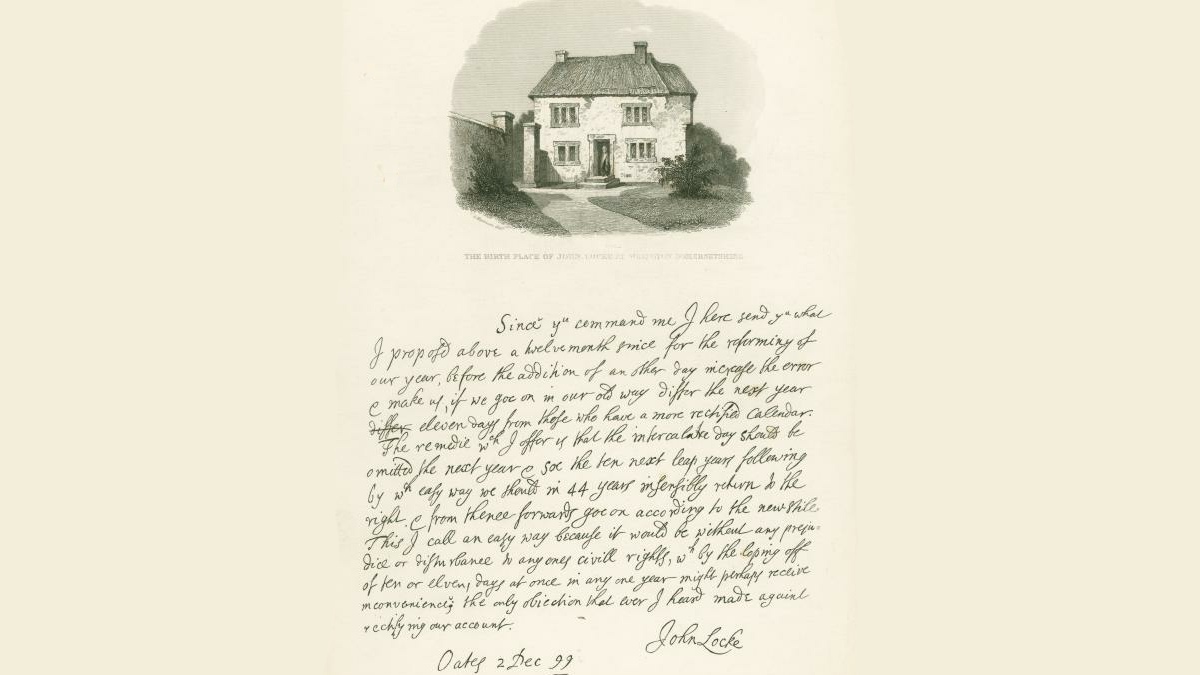John Locke believed you are the owner of your own life. When I was 15 he was my favorite thinker, I read him and was amazed by his clarity. He was known as the father of liberalism. John Locke is the philosophical basis of free-market economics and an important idea for your life. Why?
- Locke believed in individual liberty. This is important because an individual could control one’s own labor (destiny). If you controlled your own labor and not the government or lord, this would lead to a person owning the product of their work.
The ownership of private property would lead to people owning assets that would generate wealth independent of a government or lord. property was a natural right derived from labor not by the government as it had been in the past.
Locke believed natural law gave men rights
Why is this important? Because individual liberty (not a democracy) is the basis of the United States. If someone tries to control or limit your liberty, tap into your income stream or restrict the ownership of private property this was against natural law.
Man being born, as has been proved, with a title to perfect freedom, and an uncontrolled enjoyment of all the rights and privileges of the law of nature, equally with any other man, or number of men in the world, hath by nature a power, not only to preserve his property, that is, his life, liberty and estate, against the injuries and attempts of other men (and government). – Second treatise on Government
Locke believed in private property has the center of free economic based on natural law. When you say natural law this means the government does not grant the right, but right exists before the government. The role of government is to protect these rights.
Note the similarity in language between John Locke and the founding fathers.
all men are created equal, that they are endowed by their Creator with certain unalienable rights, that among these are life, liberty and the pursuit of happiness. That to secure these rights, governments are instituted among men – Declaration of Independence of the United States
Thomas Jefferson was in particular influenced by him. Marx critiques his theory of property.
Locke’s social contract believed reason and tolerance guided people’s actions. Latter self-interest (Thomas Hobbes) would be argued by other philosophers. However, Adam Smith argued for enlightened self-interest which is a combination of both. I tend to agree.
John Locke on inequality
Locke believed that in nature men are generally equal in talents and skills. This was an enlightenment idea. Although modern psychology might argue against this, I personally believe the talents of people are more equal (but sometimes different) than unequal.
Economic inequality comes about when people applied talent in different ways. This is so clear that it almost seems like circular reasoning. However, if that is true then why do people not live their lives by the idea today? If they want to make more money, why do they not pursue this with more vigor than look for excuses?
All wealth is the product of labor. Locke
However, to be honest, Locke also explained the inequality in relation to this theory of money and the problems money cause.
John Locke was not free trade
Although Locke’s theories were close to classical liberalism when it came to the individual he did not support free trade and was more of a mercantilist. Locke was a brilliant thinker but was not Adam Smith. Locke was more a theory of value and a natural law thinker.
Free Trade was a part of Dudley North and Mandeville’s political economy who extended Locke’s thinking that society is an abstraction and that individual appetites and interests were the basis of economics. Therefore North concluded that trade, interest rates, money should not be set or restricted by the government.
Locke and limits to accumulation and money – Locked believed there was a moral limit to excess accumulation of property because people had consumption limits. Excess consumption and accumulation was a waste and contrary to nature. However, money the ultimate durable good solved this problem. It eliminated the limits on accumulation.
Locke on monetary theory and trade
He was a basic monetarist, that is he believed that the value of money was inversely correlated to the amount of money in circulation. However, he wrongly assumed that if a country’s gold inflows decreased relative to other countries depression would set in. Locke believed (wrongly) the supply of gold increases relative to the volume of trade. David Hume, argued rightfully so that if this started to happen the price of goods relative to other countries would fall and correct this trade imbalance.
John Locke’s theory of value was based on supply and demand as outlined in Some Considerations on the Consequences of the Lowering of Interest and the Raising of the Value of Money. Locke wrote:
The price of any commodity rises or falls by the proportion of the number of buyer and sellers.
Economics and your life
- In conclusion, the basic elements of the ideas of the United States idea of liberty and in particular economic liberty are found in John Locke (“
The end of law is not to abolish or restrain, but to preserve and enlarge freedom”). - I believe in examining the original thinkers of the political economy can be a great inspiration and motivation for people’s lives in pursuit of happiness and prosperity in their own lives. If you understand and look at life by penetrating philosophical problems deeply, rather than superficial modern motivational thinkers, your life will be richer both figuratively and literally, mine is.

Leave a Reply